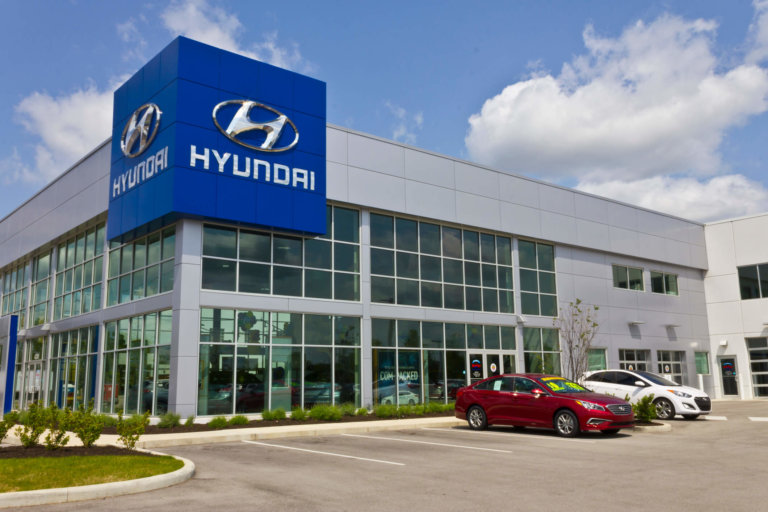By Lauren C. Martin, Esq.
Hyundai and Kia’s 2.4-liter and turbocharged 2.0-liter Theta II engines are gasoline direct injection (“GDI”) engines that have been the subject of headlines and lawsuits for years. The vehicles equipped with the Theta II engine include the following:
- 2011-2014 Hyundai Sonata
- 2011-2014 Hyundai Sonata Hybrid
- 2011-2014 Hyundai Santa Fe
- 2013-2014 Hyundai Santa Fe Sport
- 2011-2014 Kia Optima
- 2011-2014 Kia Optima Hybrid
- 2011-2014 Kia Sorento
- 2011-2014 Kia Sportage
Drivers of vehicles equipped with these engines have reported engine knocking, excessive oil consumption, engine stalling, engine failure… and if that isn’t enough, spontaneous fires. According to publications by Kia and Hyundai, faulty manufacturing of the vehicle has left metal debris around the engine crankshaft, which contaminates the oil and can (and will) create a very unhappy engine. California consumers stuck with this unfortunate engine have complained to Hyundai and Kia for years about the incessant problems; to no avail. While Hyundai and Kia have applied a series of “band-aid” fixes to the dangerous issues, their customers continue to suffer through a myriad of engine issues.
In September 2015, Hyundai was compelled to recall 470,000 Model Year (“MY”) 2011 and 2012 Sonata’s to prevent engine failures and fires. In March 2017, Hyundai expanded the recall to include 572,000 MY 2013-2014 Sonata and Santa Fe Sport vehicles, also with the Theta II engine. On the same day, Kia recalled 618,000 Optima, Sorrento, and Sportage vehicles – also with the Theta II engine.
By May 2017, following concerns reported by one of Hyundai’s own employees, NHTSA (“National Highway Traffic Safety Administration”) launched a formal investigation into Hyundai and Kia’s Theta II recalls, whether they covered enough vehicles, and their knowledge of the defects.
The NHTSA investigation on Hyundai states,
“On September 10, 2015, Hyundai Motor America (Hyundai) field a Defect Information Report (DIR) recalling 470,000 MY 2011 and 2012 Sonata vehicle with “Theta II” engines (Recall No. 15V-568). Hyundai’s DIR described the defect as an issue involving manufacturing debris. Hyundai limited the population of recalled vehicles to those produced on or prior to April 12, 2012, stating that a process change in April 2012 resolved the issue of manufacturing debris.
On March 31, 2017, Hyundai expanded its original recall to include 572,000 MY 2013-2014 Sonata and Santa Fe Sport vehicles with “Theta II” engines (Recall No. 17V-226). The DIR continues to describe the defect as an issue involving manufacturing debris.
The recall query (“RQ”) is being opened to investigate both the timeliness and scope of Hyundai’s “Theta II” engine recalls, and Hyundai’s compliance with reporting requirements.”
The NHTSA investigation on Kia states,
“On March 31, 2017, Kia Motor Americas (Hyundai) filed a Defect Information Report (DIR) recalling 618,160 MY 2011-2014 Optima, MY 2012-2014 Sorento, and MY 2011-2013 Sportage vehicles with “Theta II” engines (Recall No. 17V-224). “Theta II” engines are a family of engines used by both Kia and Hyundai Motor America (Hyundai). Kia’s DIR described the defect as an issue involving manufacturing debris as well as a machining process causing an uneven surface roughness which could restrict oil flow within the engine.
Previously, on September 10, 2015, Hyundai filed a DIR recalling certain vehicles containing engines from the shared “Theta II” engine family, describing a defect as an issue involving manufacturing debris. Kia’s March 31, 2017, DIR states that Kia did not conduct a recall upon learning of Hyundai’s September 2015 recall because Kia’s “Theta II” engines were manufactured on a different production line and did not have the same manufacturing issue.
The RQ is being opened to investigate both the timeliness and scope of Kia’s “Theta II” engine recall, and Kia’s compliance with reporting requirements.”
In 2017, Hyundai settled the class action of Mendoza v. Hyundai Motor Co., Case no. 15-cv-01685, by agreeing to: 1) help vehicle owners pay the cost of repairs or replacements; 2) reimburse owners for rental and towing expenses; and 3) extend the warranties on these cars from 5 years/60,000 miles to 10 years/120,000 miles. However, the Mendoza case was limited to only certain vehicles and many Kia and Hyundai vehicle owners continue to suffer through frustrating repairs and engine problems.
Even despite the above NHTSA investigations and class action lawsuit filed, Hyundai and Kia have continued to have problems with their Theta II engines despite recalls and repairs. NHTSA investigations were opened again on August 21, 2018 and March 29, 2019 regarding the Theta II engines in Hyundai and Kia vehicles for continued engine failures that may cause stalling and non-collision fires.
If you have purchased or leased a vehicle equipped with the defective Theta II engine and have experienced any engine problems, the lemon law attorneys at CCA are here to help. For a free consultation, contact us at (833) LEMON-FIRM.

